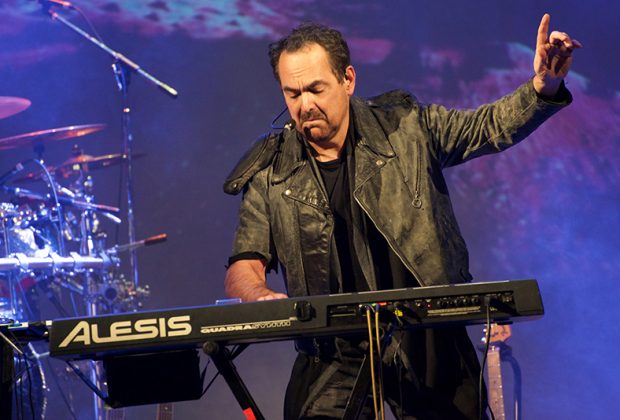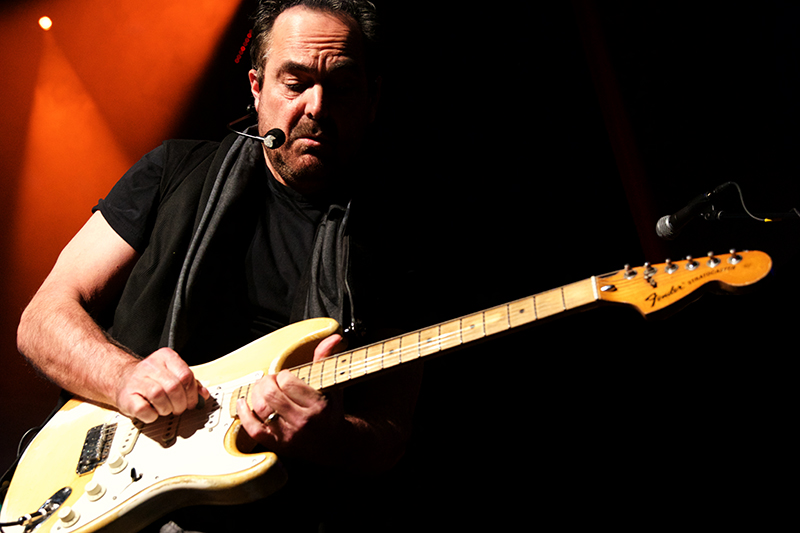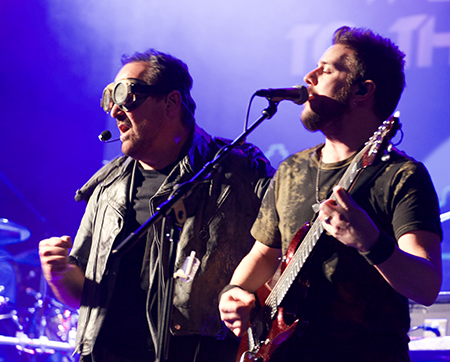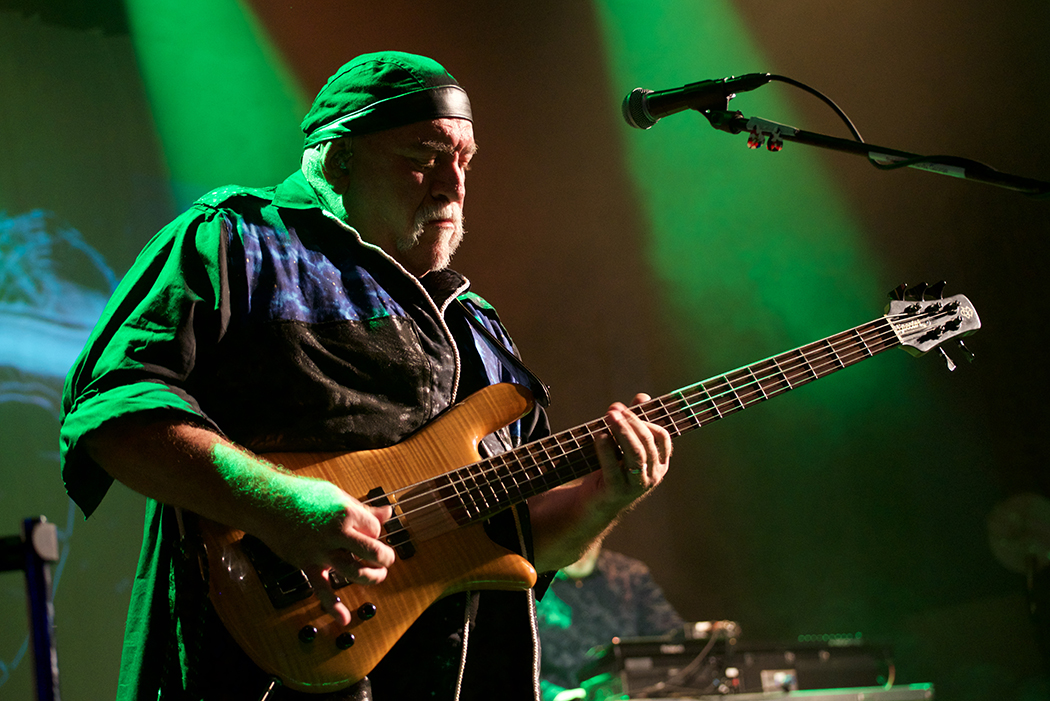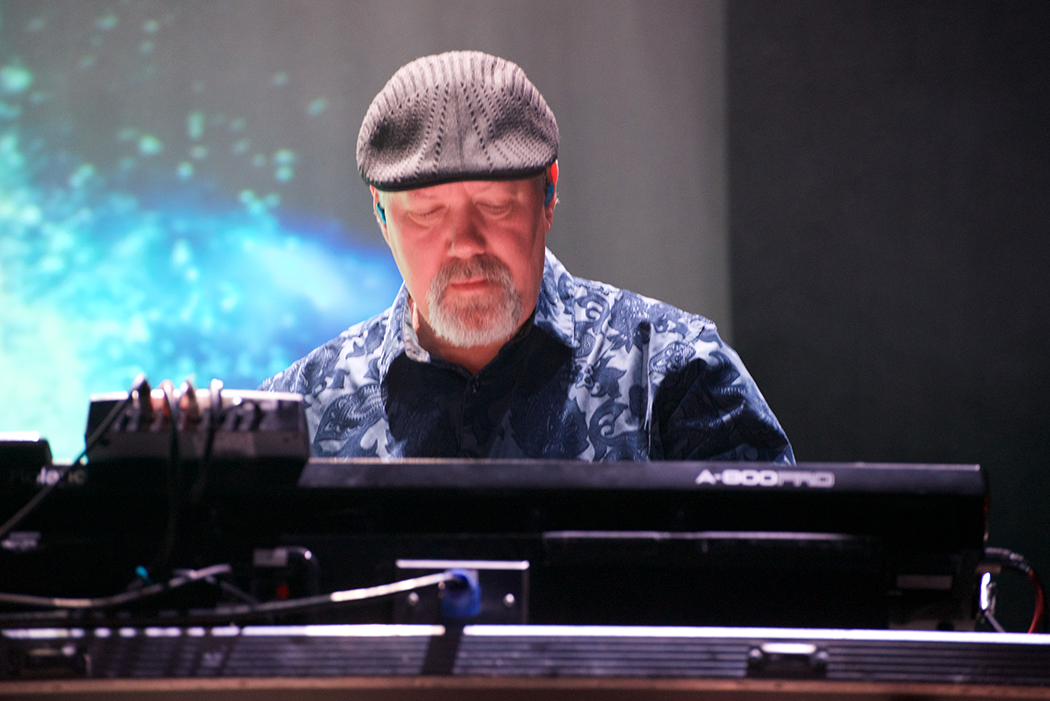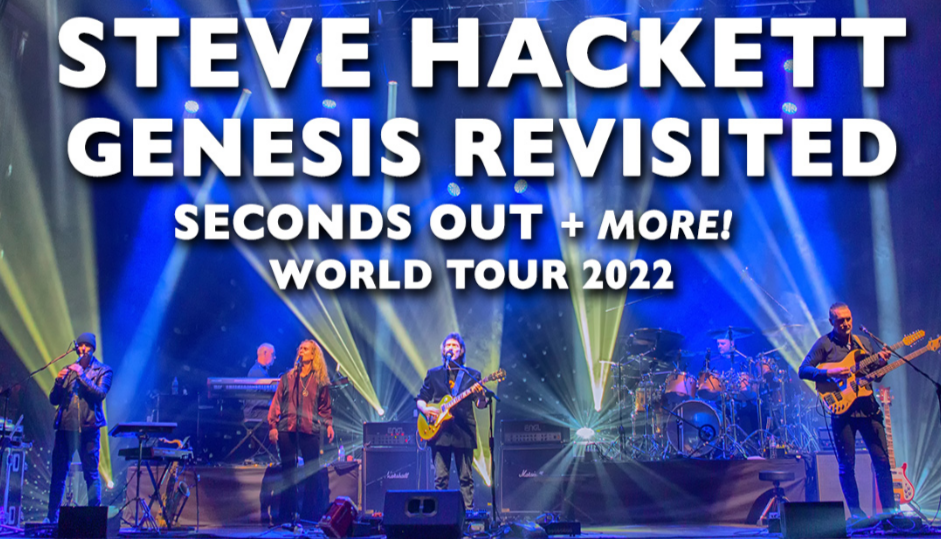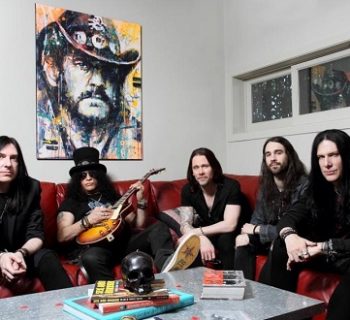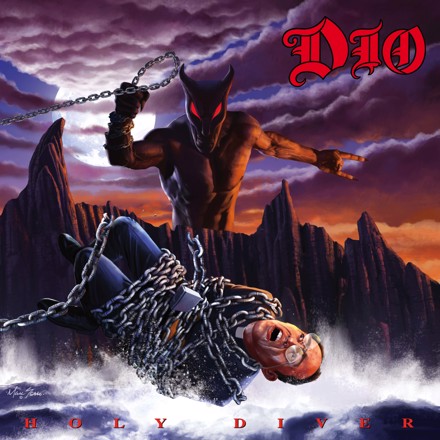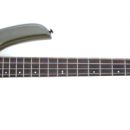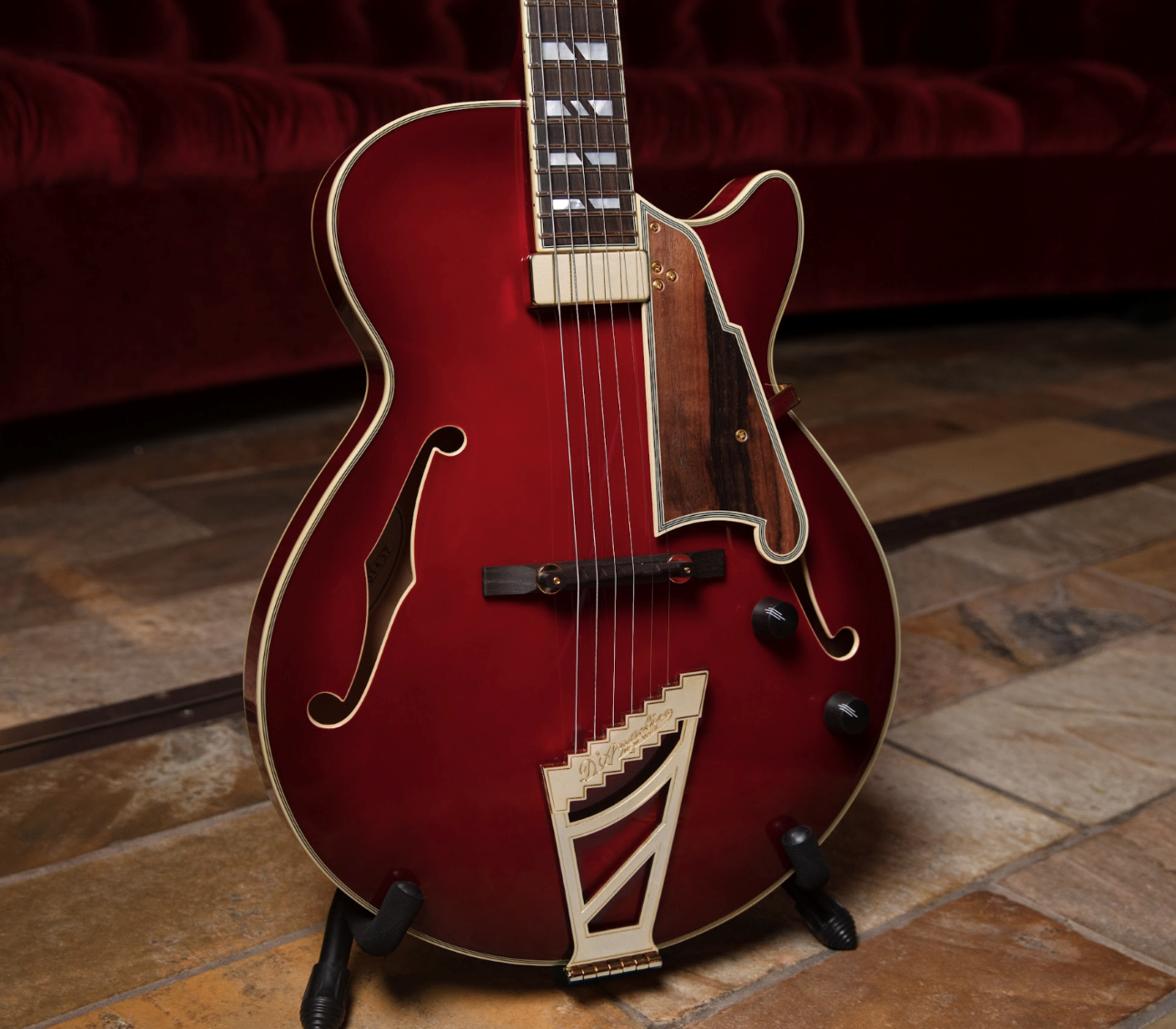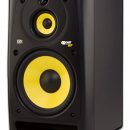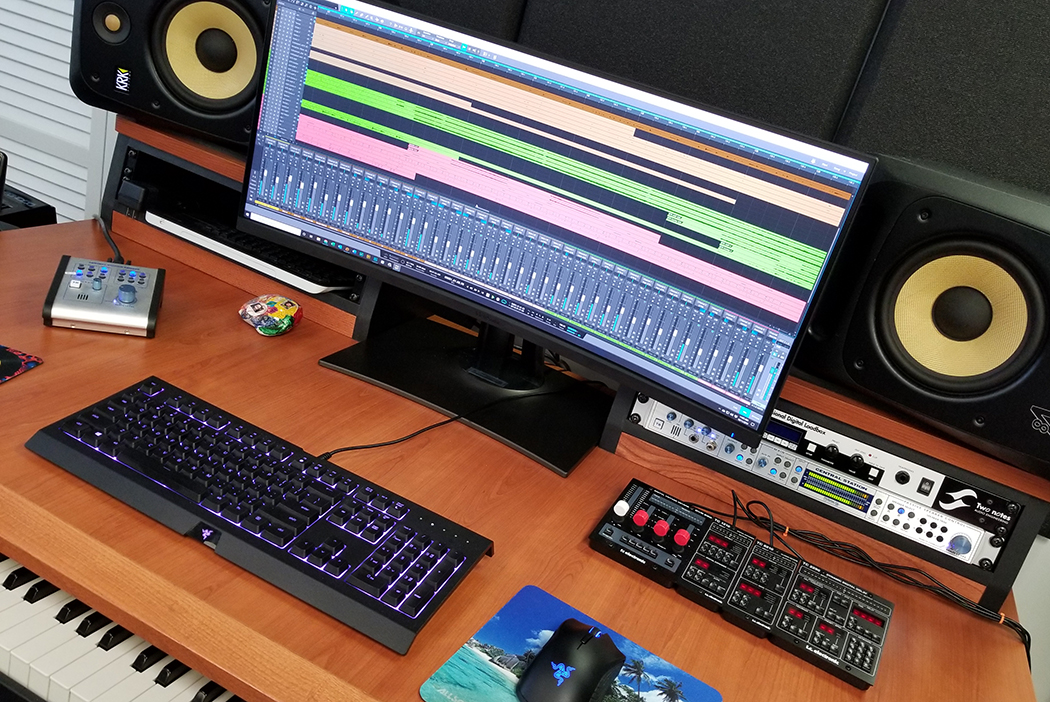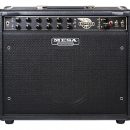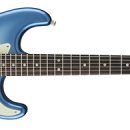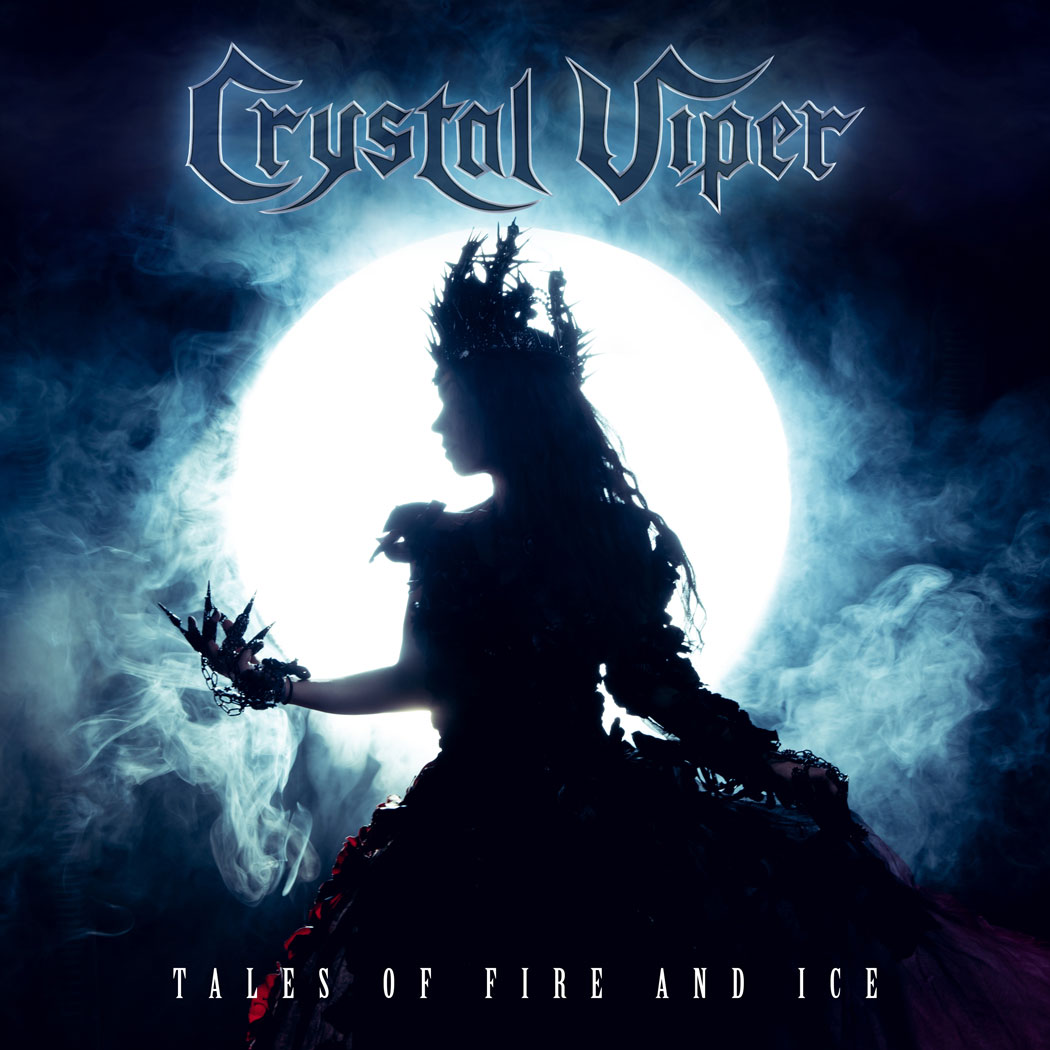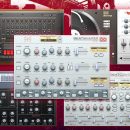Neal Morse needs little introduction at this point, and not just because we love to chat with him every time he releases a new record. He’s a musician of extraordinary talent, capable of writing and performing complex progressive rock songs with blistering lead work on keyboards or guitar. He has a solid singing voice and can arrange multi-part harmonies that support the tall tales and introspective stories of his conceptual pieces. And then he can turn on a dime, grab an acoustic guitar, and write singer/songwriter material with a vibe right out of the ‘60s and ‘70s (check out his fantastic solo record from 2017, Life and Times). A master of many musical styles—not to mention many instruments, Neal Morse is a musician that you can draw musical inspiration from, and whose lyrics can fill you with plenty to think about.
Everybody takes the basic canvas, and then they go home and they start throwing paint at it.
MPc: You really wasted little time coming on the heels of Life and Times to put out this remarkable new album, and I have to ask, you couldn't just follow up with a nice, simple, six or seven song collection of unrelated songs? You had to follow up a double album concept record with another double album concept record? [laughs]
NM: Right. It's crazy! [laughs] We didn't really want to do it. None of us did. Okay. In fact, when we got together in January to make the album, we did a single disc version of this album that was not a concept. We didn't have all the lyrics or anything, so it's just like, a line here and there, dah, dah, dah, dah, dah. [singing melody] We didn't really want to do it, but it seemed to me after the January sessions, sitting with those recordings, I just couldn't rest with it. I didn't have peace with it. I didn't feel like it was everything that it needed to be, but I didn't know what it needed to be either. And, I don't know, I just kept praying. I kept thinking about it, and I couldn't let go of the Pilgrim's Progress thing.
It just kept haunting me, but I didn't know where to go with it. It's been a great adventure making this record because everybody in the band has some pieces to this puzzle that's this great mosaic that God's trying to create through us. And, sometimes, you only have a little bit, but you have this sense that there's a lot more, but it's hard to convince other people if you don't have at least a decent amount of the picture, so they can see what it's supposed to be. And so, I came away from the January sessions, and I took all the stuff that we had written together, and I cut and pasted it and added some things. I added some stuff that we had written together before, and I added some stuff that I had written on my own, and I had made like a two and a half hour version of The Great Adventure.
I wasn't even paying attention to the time. I didn't know how long it was. I was just kind of just going for it, throwing things against the wall so to speak. And, then in February, I had to tell everybody that I didn't think that what we done was good enough. That was not an easy conversation, especially because I didn't have the solution. It's like “Guys, I don't think this is quite there, but I don't know what it's supposed to be and I don't know what we should do.” Nice leadership, right? So, I just felt like we needed to kind of just sit with this, and try to discover what it's supposed to be. That's a lot of what I think being a musician is about. It's this discovery, discovering what the music is supposed to be.
And so, I worked on it a bit on my own, and I did this long thing, and I presented that to them in probably April and everybody liked it, which was great. And, they did feel like it was better, but it still wasn't there. It wasn't like, okay, now we'll just record this. No, it wasn't. It still wasn't right. It wasn't good enough. It was too long. And so, we got back together in August as a band and miraculously it all just came together. We cut out a lot of stuff and then it was like, how are we going to fit this thing to that thing? And, I had cut out, I think, on my version it didn't have, “I Got to Run” in it. I think I'd cut that out. And Mike was like, “Oh no, we got to have that song in there, how can we fit this together? I think it should be like this.” We had all worked on it together and everybody brought their pieces to the puzzle. And, now we have The Great Adventure, which you hold in your hands. But, it was quite a process.
MPc: Yeah. Especially considering nobody lives in the same town as each other. You don't just randomly get together to work on a record, either.
NM: Right. We all have to fly in and everything. And that's, it's a thing. And, being that everyone's so busy, particularly Mike. Mike is the most busy guy of all of us. Really. And so, trying to fit his schedule was a super challenge and that's why we had to wait all the way ‘till August to get together. And so, I'm just super thankful that it all worked out.
MPc: Who came up with the idea to fly to California to shoot videos?
NM: Oh, well that was another God thing. [laughs] It was supposed to be, my daughter was getting married December 15, and they were all coming—or so I thought. And so, I thought, well, while they're here, let's shoot videos the day after, the two days after the wedding. And, then Mike said, “Oh, I can't. I've got this other engagement.” And then, he said, “But I'm going to be in L.A. on this particular week.” I'm like, “Oh, I don't want to go that week. I'm just coming back from Europe on Sunday. I don't want to go to L.A. that week.” But… That's what I wound up doing. Because I didn't want to crowd my daughter's wedding with stuff. And, what Mike had scheduled for that day after the wedding wound up getting canceled. But, it was really cool. I think the way it worked out was just great. The videos are great, and it was good to get it all done. So then, the week of my daughter's wedding, I had nothing but I could just be with her.
MPc: That's great.
NM: Yeah, it was perfect.
MPc: Something I really never gave much thought to, and not enough credence to, is the presence of Bill Hubauer on your NMB records. How do you go about sharing keyboard duties with Bill?
NM: Oh, that's funny. Because right now, just this morning, I'm going through the album and telling him what I [need him to play]. He was like, “I think the best way to approach this for the tour is for you to tell me what you want to play, and then I'll play whatever you're not playing.”
So, I was just sending him stuff this morning, like, “I think I'll play piano here. I think I'll play guitar here… I'd like to be the lead singer here. Can you cover all the keyboards?” This record was different. Bill was very busy. We also had Morsefest [festival show] coming up. So, we finished the sketch for the album. Mike finished his drums at the beginning of August, which is a pretty tight pinch to make January 25th, because you generally need six weeks or something for Rich [Mouser] to mix it.
Then, the promotional people, they want to have enough advance notice. So, it was really tight and we didn't really even know right up until the end if we were going to make it. I mean, this is really down to the wire stuff. Bill was really busy, so I did more organ on this than usual. But, it's kind of a thing, I would say what I did was I went through this album, and I did what I would call the meat and potatoes stuff. I did the pianos and the organs, not all of them, but what I did was, I texted him and said, “Hey, I'm thinking about doing organ on this. Should I or do you want to do it?” It was like that.
And then, some of the stuff was obvious, like if it's a synth solo that it was already sort of decided when we were creating it, who was going to do it. So, yeah, we just talk about it. Like, hey, do you want to do this part? You want to do this part? And we just keep working on it, and it's awesome.
MPc: This is definitely the heaviest, most aggressive Neal Morse Band record you have put out to date. You've spoken about, thematically, this is a darker part of the Pilgrim story. How did that inspire the writing? Or, was the lyrical content inspired by the fact that the band was playing some of it's shreddiest stuff?
NM: Well, I think it was all just orchestrated by God, honestly. Because we did a lot of these things, a lot of the heavier parts were already in place before the lyrics came. But then, when I had the idea, it wasn't until February that I had the idea and this was a real key for me. Lyrically and, thematically for the whole album. The second half of the Pilgrim's Progress book is written from the perspective of the traveler's wife. The wife that doesn't go with him on the journey, which is what we talk about on the first album of Similitude, in the song “We Have Got to Go.” He's saying, “Hey, I really feel called to leave here. Please come with me,” and she won't. So, the second half of the actual book, a lot of it's written from her perspective.
I toyed around with that because I thought that was pretty compelling, but it just didn't work. It didn't work for me to be singing from her perspective. So, in February, I had the idea of singing from the perspective of the angry, abandoned son. And that really kind of unlocked the whole thing for me lyrically. And, that I think that's why it has an angrier tone, because the main character's really angry. And, especially in the beginning, I mean, he's dealing with his anger, bitterness towards his father on much of the record.
MPc: Something that I think is really interesting about you as a songwriter is your ability to wear such diverse hats as a lyricist where, if we listen to Life and Times, your last solo record, you're writing very personal, introspective commentary. You're writing stories about life and experience, whereas in the Neal Morse Band, which is very progressive rock focused, you're telling stories, you're telling tales, you're writing a book. How do you switch to that frame of mind as a lyricist?
NM: I've always really enjoyed doing both. I really enjoy, like on the Life and Times album, I really enjoy just writing the truth of my own life as best I can. But, I also really have always enjoyed writing story songs like “Emma” from my first solo album, or I've written a lot of story songs where I just kind of tell a story of something that I didn't actually live through, often from somebody else's point of view. I really enjoy that too. So, I don't know, to me it's kind of just natural. When I'm writing from my own perspective, I'm thinking, okay, how do I feel about this? Or, how did I feel when this happened? But, when I'm writing from someone else's perspective, then I'm like, how would they feel in this situation, and why did they feel the way that they do? And, it's not really hard for me to do both. And, on this album, some of it is intertwined. I'm putting my own thoughts into Joseph's thoughts. So, my own opinions. There's a lot of me in Joseph.
MPc: Tell me about the song, “Vanity Fair.” It sounded like it could have been a leftover track from Life and Times as it really had that ‘60s pop vibe.
NM: When I wrote "Vanity Fair," I'd read some of the stuff about Vanity Fair in the Pilgrim's Progress book. Then, I was thinking about what that would be like. I was thinking about it in modern times, I guess, from my own perspective, like if I was going somewhere like Vanity Fair as described in the book. In modern times, what would that be like? A fashion show? Or where everybody's wanting everyone to know what designer made their bag, or all that kind of stuff…
MPc: It was a great social commentary.
NM: Shallowness. The shallowness of all of that. Yeah.
MPc: Your integration of ’60s and ‘70s pop with progressive rock is really evident in the band’s vocal harmonies. Do you work up the harmony ideas by yourself, or do you guys sit around as a group and just ad lib some of that stuff?
NM: Well, really both. Sometimes we kick it around in the room, and Mike sings as well. So, we have four-part harmonies going on. And sometimes, I was sketching out the vocals because it's good to have a template because we're all working on it. After we write it and Mike does his drums, then we all take the tapes to our respective home studios and work on it. So, it can be really helpful to have a template. So, you know how you're supposed to phrase it because we've all got to phrase these harmonies together, and so I’ll work out some of the harmonies like that. But then, I mean everybody kind of, it's like everybody takes the basic canvas, and then they go home and they start throwing paint at it. Everybody's just painting on this thing, and then Rich Mouser gets to sort it all out and make it sound good.
MPc: So I have to ask you. I couldn't figure out what these lyrics were. What are you singing in the end of, “Hey Ho, Let's Go” with, “Don't try to…”
NM: "Don't try to lay no boojee woojee," which is what British guys used to say instead of boogie woogie. They'd say boojee woojee. Don't try to lay no boojee woojee on the kings of rock and roll. And my thought was—and that was a song that I heard some Led Zeppelin wannabe band in Coos Bay, Oregon when I was a kid, played some song called “Don't Try to Lay No Boojee Woojee on the Kings of Rock and Roll.” Somehow, all these things are still back in my mind somewhere and somehow they show up.
I was thinking of them, like he's been through, at that point in the story, Joseph has been kind of attacked by the enemy, and now his friends brought him out, so now the two of them are now going on their journey and they're feeling really good. Sometimes, when you're with your friend and you've come through something, and now you're back on the path, you can feel like nothing can touch you. You can feel like the kings of rock and roll. That's where I was coming from as they were kind of skipping down the street singing “Don't try to lay no boojee woojee.”
MPc: Cool. Now, looking at this body of work, do you have any particular musical moments and lyrical moments that really stand out for you as moments that just make you smile when you hear it and think, “Oh yeah, that's something I'm really excited about?”
NM: Man, you know, I have to tell you, I've been listening through in just this morning, and figuring out what I'm going to play and saying, I'm pretty excited about all of it really. I mean, I think as a piece, it's great. The real standout stuff for me, man, I love the opening “Overture.” “Welcome to the World,” I think is great. “Dark Melody's” great. “I Got to Run's” great. The part after “I Got to Run,” I forget what it's called, “To the River?,” that's going to be amazing, and then, “Great Adventure.” I mean, I'm sorry, I'm not helping. But, a real standout to me is “The Great Despair.” I think it's a really strong song and Eric's vocal on it is just killer, and I'm going to play the slide guitar on it. So, I can't wait to do that. And, “The Love That Never Dies,” the ending is epic, you know? So, yeah, I'm pretty much in love with all of it.
MPc: That's great. So tell me something unexpected about The Great Adventure that most fans probably wouldn’t realize?
NM: Well, let's see… Well, they probably don't know that it's me doing the guitar solo on “Welcome to the World.” I don't know why… Eric had to go on vacation. And then, when I got the tapes from him, I just figured I would listen through and fill in the blanks on guitar, which is kind of what I do, usually. I just listened through, like, whatever. In other words, Eric does the meat and potatoes. And then, I kind of just fill in around the edges if I hear something like, oh, an electric sitar would be cool there. I do a lot of the guitar through a Leslie thing, the smaller things.
And, there it was. The big heavy guitar solo in one of the big songs on the record and he left it blank! And, I texted him, and he said, “Well, I'm done, man. I didn't hear anything, man. Everything I tried just kind of sucked.” I'm like, “You're the shredder dude, you know?” So, I'm like, well, it needs to have something. So, I just kind of turned my… I got a Les Paul, and I put it through the heavy amp and put some effects on it. And, the first thing that happened was, I didn't even know what key it was in. Because it's changing key all the time. Like, I don't know, what am I going to play? And then, I just turned everything on and it started this feedback, and I pushed Record and just like, “Ahh” [fake scream], oh wow, that sounds pretty cool. And, I started [insert fake guitar soloing noises] doing a trill up on the E string and was like, oh, I don't know, that sounds pretty cool, too. And, then I started just messing around, not even knowing what key and bending, doing all this stuff. And I'm like, oh, that's pretty cool. In a little while I thought I had a solo that sounded pretty cool. So, that's what's on there. It's just me messing around having no idea what key I'm in.
MPc: That's awesome. Now, knowing that you pull off some lead guitar here, I have to ask: I know your brother [Alan Morse of Spock’s Beard] plays without a pick. What do you do?
NM: I play with a pick. Oh, yeah. I think, I think Al plays without a pick because of sibling rivalry. I remember he played bass first, so he was playing with his fingers… and I was playing guitar with a pick, and I think he got tired of being in the background, and also, I was starting to play keyboards more. We're talking 1972. So, I'm 12, and he's 13 or something. And, there begins to be more and more keyboard parts, so he starts to take up guitar a little bit more. I think I told him, “Dude, you're never going to be any good. You're never going to be as good as me, playing without a pick.” And I think he was like, “Well, you just watch me.”
MPc: That's great. And now we have it! Now we know the real reason why Alan plays without a pick! [laughs]
NM: Right. You can tell him I said that. [laughs] I don't know if he would say that, but that's what I think.
MPc: Yeah. Maybe we'll do something fun with this interview. I'll send him an email and say, “Hey, you want to offer a rebuttal?” [laughs]
NM: Right! [laughs]
[Editor’s Note: We reached out to Alan, who did, in fact, confirm the story. Says Alan, “Well, that's pretty much how I remember it, too! Nothing like a dare to a teenager. Here we are how many years later? I rarely use a pick, only in the studio. There are some things that just sound better that way, but it's totally awkward for me. I don't know how the other guys do it!” (laughs)]
All photos © 2019 Scott Kahn/MusicPlayers.com.

